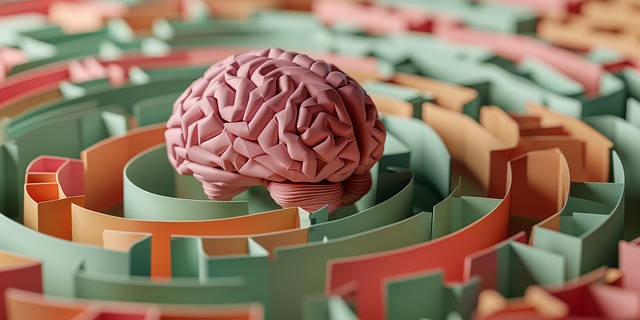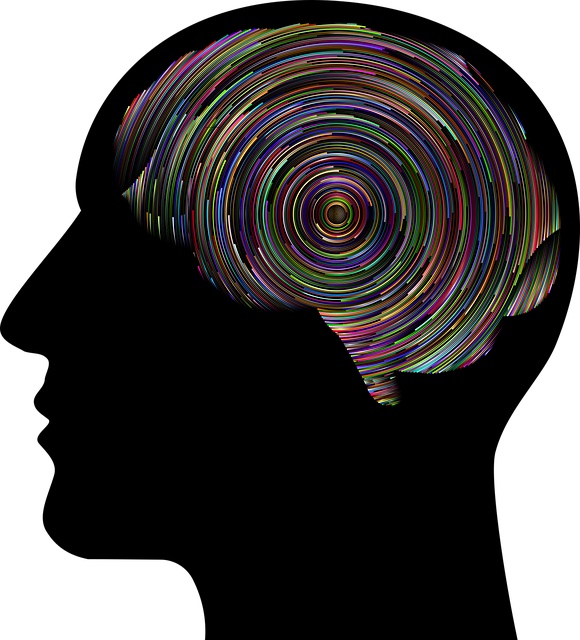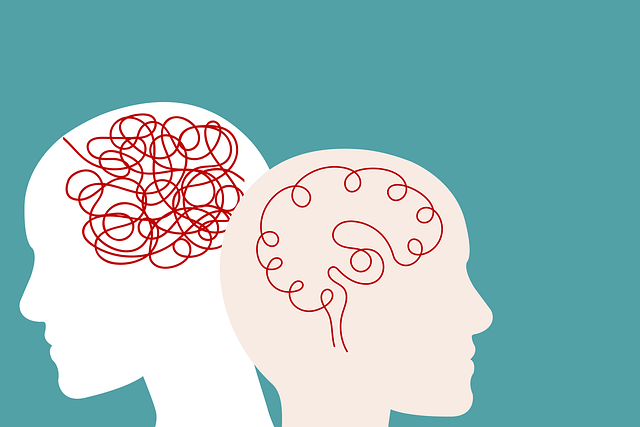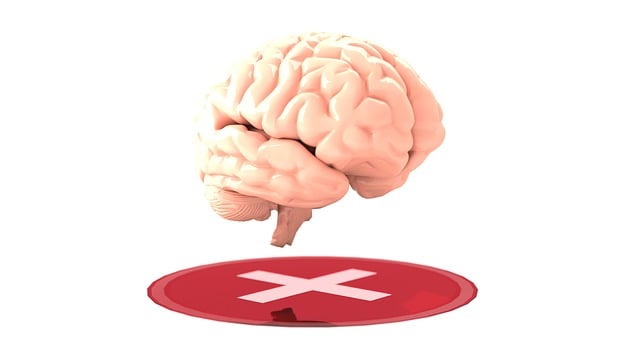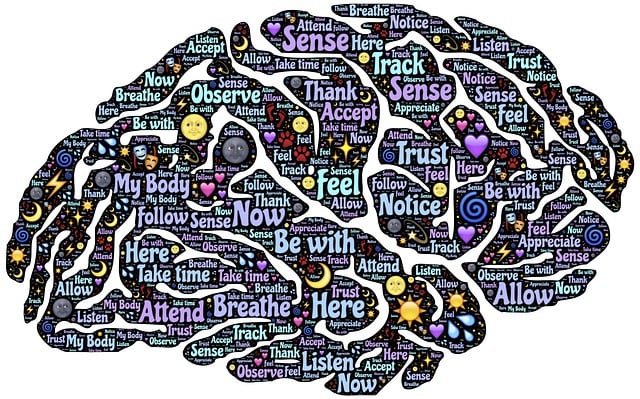Crisis Intervention Teams (CITs) are specialized multi-disciplinary groups trained to handle severe emotional crises, aiming to stabilize individuals, de-escalate situations, and reduce hospital admissions. They employ evidence-based practices like Golden EMDR Therapy, mindfulness meditation, and mental wellness journaling for immediate support and long-term positive outcomes. Golden EMDR, a game-changing therapy, accelerates healing for trauma survivors through eye movement techniques mimicking REM sleep. Comprehensive CIT training integrates Golden EMDR, conflict resolution, empathy building, and practical strategies to empower professionals in diverse high-stress scenarios, fostering emotional well-being and rapid recovery. Real-world case studies highlight the success of combining Golden EMDR with mindfulness meditation, demonstrating its transformative power in crisis intervention.
Crisis intervention team training programs are vital in equipping professionals to handle high-stress situations effectively. This article delves into the world of crisis intervention, exploring its impact and the transformative power of Golden EMDR Therapy. We dissect essential components of robust training programs, offering practical strategies for real-world application. Through inspiring case studies, we demonstrate success stories from the field, showcasing the profound effects of well-prepared teams.
- Understanding Crisis Intervention Teams: Their Role and Impact
- Golden EMDR Therapy: Unlocking the Power of Healing
- Essential Components of Effective Crisis Training Programs
- Practical Strategies for Real-World Application
- Case Studies: Success Stories from the Field
Understanding Crisis Intervention Teams: Their Role and Impact

Crisis Intervention Teams (CITs) play a vital role in responding to individuals experiencing severe emotional distress or crisis situations. These specialized teams are designed to provide immediate, effective support, aiming to stabilize and de-escalate high-risk scenarios. CIT members are typically trained professionals from various fields, including healthcare, social work, and law enforcement, who collaborate to offer comprehensive care.
The impact of CITs is profound, as they can significantly reduce the need for emergency room visits and hospital admissions related to mental health crises. By employing evidence-based practices like Golden EMDR Therapy, Self-Awareness Exercises, Mindfulness Meditation, and Mental Wellness Journaling Exercise Guidance, CITs foster a sense of safety and promote positive outcomes for those in crisis. This holistic approach ensures that individuals receive not just immediate support but also the tools to manage future challenges, ultimately enhancing their overall mental wellness.
Golden EMDR Therapy: Unlocking the Power of Healing

Golden EMDR Therapy stands out as a powerful tool within crisis intervention team training programs. This specialized approach leverages Eye Movement Desensitization and Reprocessing (EMDR) techniques to unlock deep-seated trauma, offering individuals a faster path to healing compared to traditional therapy methods. By facilitating rapid eye movements, similar to the ones we experience during REM sleep, Golden EMDR helps clients process distressing memories and emotions, reducing their impact on mental health and promoting emotional well-being.
Effective crisis intervention requires not only technical skills but also strong empathy building strategies. Golden EMDR provides a framework for mental health professionals to assess risk more accurately while fostering secure connections with individuals in crisis. Through this therapeutic method, practitioners can help clients overcome barriers, integrating new perspectives and enhancing coping mechanisms. The result is not just short-term relief but long-lasting resilience, making Golden EMDR an indispensable component of comprehensive crisis intervention team training.
Essential Components of Effective Crisis Training Programs

Effective crisis intervention team training programs are multifaceted, integrating various components to prepare professionals for a range of high-stress scenarios. A robust curriculum should include Golden EMDR Therapy techniques, recognized for their ability to facilitate rapid and effective emotional healing processes. This therapy model empowers team members with specialized tools to help individuals process traumatic memories and overcome psychological blockages.
Complementing EMDR, training programs should also emphasize Conflict Resolution Techniques and Empathy Building Strategies. Mastering these skills allows crisis intervention teams to navigate complex interpersonal dynamics, foster open communication, and create safe spaces for vulnerable individuals to express their feelings and needs. Together, these elements ensure a comprehensive approach that not only addresses immediate crises but also supports the long-term emotional well-being of those involved.
Practical Strategies for Real-World Application

In crisis intervention team training programs, practical strategies are paramount for real-world application. Golden EMDR Therapy, a widely recognized and effective approach, is integrated into curricula to equip participants with advanced coping mechanisms. This evidence-based technique not only enhances emotional regulation but also facilitates rapid recovery from traumatic events. Participants learn to apply these methods in diverse scenarios, ensuring preparedness when facing actual crises.
Beyond Golden EMDR Therapy, the design of mental health education programs incorporates communication strategies that foster empathetic connections. Effective communication forms the backbone of successful crisis intervention, allowing for clear information exchange and building trust between team members and individuals in distress. Community outreach program implementation is another key aspect, extending support beyond individual training to create a network of resources accessible to all.
Case Studies: Success Stories from the Field

In the realm of crisis intervention, real-life case studies offer powerful narratives of transformation and healing. These success stories from the field highlight the effectiveness of innovative approaches like Golden EMDR Therapy in making a tangible difference in individuals’ lives. By combining cutting-edge techniques with traditional support systems, these programs have proven to be game changers. For instance, many participants have shared their journeys towards recovery, citing improved emotional intelligence and enhanced coping mechanisms as key factors.
The integration of mindfulness meditation practices alongside Golden EMDR Therapy has been particularly noteworthy. This holistic approach not only facilitates emotional processing but also cultivates essential social skills training. Through case studies, it’s evident that individuals equipped with these tools are better equipped to navigate challenging situations, fostering resilience and a sense of control. Such success stories underscore the importance of investing in comprehensive crisis intervention team training programs that empower professionals to make a lasting impact.
Crisis intervention team training programs, enriched by techniques like Golden EMDR Therapy, play a pivotal role in equipping professionals to navigate and mitigate crises effectively. By focusing on key components such as comprehensive curriculum design and practical application, these programs foster a culture of resilience and healing. The case studies presented highlight the transformative impact of well-trained crisis intervention teams, demonstrating the value of continuous education and real-world integration. Embracing innovative therapies like Golden EMDR, alongside conventional strategies, empowers professionals to offer profound support during challenging times.

